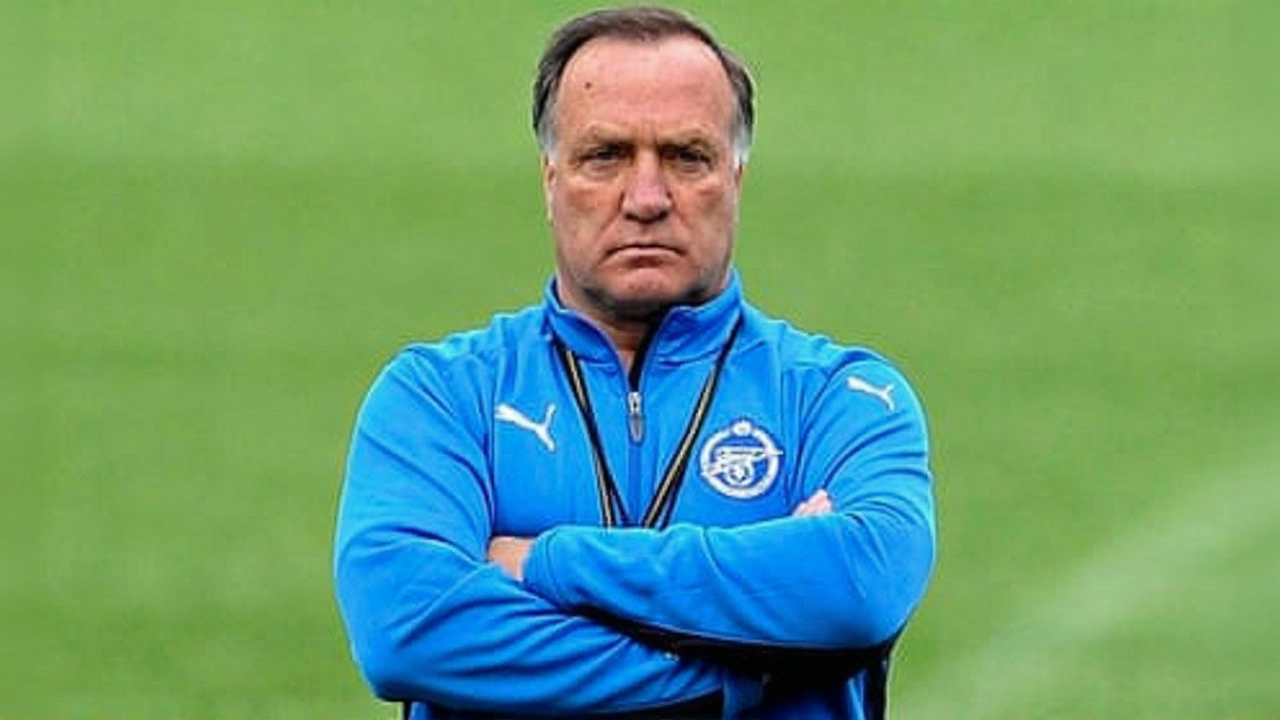On May 9, 2017, the Koninklijke Nederlandse Voetbalbond (KNVB) stunned Dutch football by naming Dick Advocaat manager of the Netherlands national football team for the third time — a move that felt like history knocking on the door. At 69, Advocaat, nicknamed ‘the Little General’, was returning to a team still reeling from missing Euro 2016. His assistant? Ruud Gullit, the former Ballon d’Or winner and once his fiercest critic. Their past clash — a bitter fallout during Advocaat’s first stint in 1999 — made the pairing feel almost poetic. This wasn’t just a coaching change. It was a reconciliation of Dutch football’s ghosts.
From Humiliation to Hope
The Netherlands hadn’t qualified for a major tournament since 2014, and after the shock of failing to reach Euro 2016, the KNVB needed someone who knew how to win under pressure. Advocaat had done it before: he led Oranje to the 1994 World Cup quarterfinals, a run that still lives in the memory of fans who watched Dennis Bergkamp’s ice-cold finishes and Clarence Seedorf’s midfield magic. But his 2004 resignation after a tactical blunder — replacing Arjen Robben with Paul Bosvelt in a crucial match against the Czech Republic — had left wounds. Death threats followed. He walked away, broken.
Now, in 2017, he was back. And the first test came on June 9, 2017, at the Amsterdam Arena. Luxembourg, a side ranked 110th in the world, came to town. What followed was a 5-0 demolition. Memphis Depay scored twice. Georginio Wijnaldum added a brace. And a 19-year-old Frenkie de Jong, making his debut, looked like he’d been playing at this level for years. The crowd roared. For a moment, it felt like the old magic was back.
The Gullit Paradox
Bringing Gullit on board was the boldest move of all. The two had clashed publicly during Advocaat’s first tenure, with Gullit accusing him of being too rigid, too defensive. Yet here they were, side by side, sharing a bench. Gullit, who had been working in media and youth development, told reporters: “We don’t need to be friends. We need to win.” Their partnership became a masterclass in professional distance. Gullit handled the players’ morale; Advocaat called the shots. Together, they resurrected a team that had lost its identity.
They won their next qualifier against Latvia 3-0. Then came a gritty 1-0 win in Norway. The Netherlands sat atop Group D. But then — the collapse. A 2-1 loss to Bulgaria in Sofia. A 1-1 draw at home to the Republic of Ireland. Momentum vanished. The pressure mounted. And by October, it was clear: they wouldn’t make it to Russia 2018.

Final Matches, Final Record
Advocaat didn’t quit. He finished what he started. His last two matches were friendlies — against Scotland on November 10 and Romania on November 14. The Netherlands won both: 3-1 and 4-1. The final whistle against Romania was met with a standing ovation. Advocaat, in his navy blue suit, clapped slowly, eyes wet. He had now won 37 games as Netherlands manager. That surpassed Bob Glendenning’s 77-year-old record of 36. The numbers didn’t lie. He was the most successful manager in Dutch history — by wins, by percentage, by resilience.
His tenure had been messy. Controversial. Imperfect. But it was also deeply human. He had returned to a team full of players who had grown up watching him on TV — Arjen Robben, Robin van Persie, Wesley Sneijder — all of whom had once been on the receiving end of his tactical fury. Now, they were his soldiers.
Legacy Beyond the Pitch
Advocaat didn’t just coach teams. He shaped eras. He managed seven other national teams — including Belgium, where he took them to Euro 2016 — and club sides from Zenit St. Petersburg to Samsunspor. His tactical mind was sharp, his discipline ironclad. He didn’t believe in flashy football. He believed in structure, in organization, in never giving up. In a modern game obsessed with pressing and pace, Advocaat was a relic — and somehow, that’s what the Netherlands needed.
After stepping down in November 2017, he didn’t disappear. In 2021, he took over the Curaçao national football team. By 2023, he had guided them to their first-ever World Cup qualifying playoff. At 78, he was on the cusp of becoming the oldest manager ever to lead a team to a World Cup finals — a feat that, if achieved, would cement his legend beyond Dutch borders.

Why It Matters
Dutch football has always been about ideals — total football, flair, freedom. But in the 2010s, it lost its way. Advocaat’s third stint wasn’t about beauty. It was about survival. He didn’t bring back the golden generation. He brought back pride. He gave a generation of young players — De Jong, Depay, De Ligt — a sense of what it meant to wear the orange. And when the World Cup missed them, it wasn’t because he failed. It was because the system had failed them.
Advocaat didn’t just manage a team. He held it together when it was falling apart. And that, in football, is rarer than any trophy.
Frequently Asked Questions
Why did Dick Advocaat return to manage the Netherlands in 2017 after previously resigning in 2004?
The KNVB turned to Advocaat after the Netherlands failed to qualify for Euro 2016, leaving the team without a clear direction. His deep knowledge of Dutch football, past success in World Cup campaigns, and ability to manage veteran stars made him the safest option — despite his controversial past. The federation believed his discipline could restore order.
What was the significance of Ruud Gullit becoming Advocaat’s assistant?
Gullit and Advocaat had a bitter falling out during the 2004 European Championship, when Gullit criticized Advocaat’s tactics. Their reunion in 2017 symbolized a healing of Dutch football’s internal fractures. Gullit’s charisma helped connect with younger players, while Advocaat’s structure kept them grounded — a balance that worked despite their history.
How did Advocaat surpass Bob Glendenning’s win record?
Advocaat’s 37 victories as Netherlands manager surpassed Glendenning’s 36 wins, a record held since 1940. He achieved this across three separate tenures: 1992–1994, 1998–2000, and 2017. His final two wins against Scotland and Romania in November 2017 pushed him past the mark, cementing his status as the most successful Dutch national team manager by wins.
Why did the Netherlands fail to qualify for the 2018 World Cup under Advocaat?
Despite strong starts, the team lost key matches — notably a 2-1 away defeat to Bulgaria and a 1-1 home draw with Ireland. Tactical rigidity and an aging squad struggled against high-pressing opponents. While Advocaat’s defense held firm, the attack lacked creativity in crunch moments. Ultimately, the Netherlands finished third in their group, behind Sweden and the Czech Republic.
What role did Dick Advocaat play in Curaçao’s World Cup qualification?
After leaving the Netherlands, Advocaat took over Curaçao in 2021 and rebuilt their squad using Dutch-trained players of Caribbean descent. His disciplined system and experience in high-pressure qualifiers helped them reach the CONCACAF Nations League finals in 2023, earning a playoff spot for the 2026 World Cup — a historic first for the island nation.
Is Dick Advocaat the oldest coach to ever qualify a team for the World Cup?
As of December 2023, Advocaat was 76 and leading Curaçao toward the 2026 World Cup qualifiers. If Curaçao qualifies, he would become the oldest manager in World Cup history — surpassing Italy’s Cesare Maldini, who was 73 in 2002. No coach over 75 has ever led a team to a World Cup finals, making Advocaat’s potential achievement historic.
